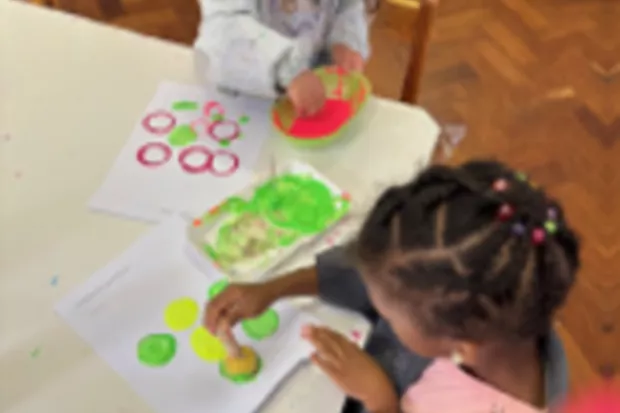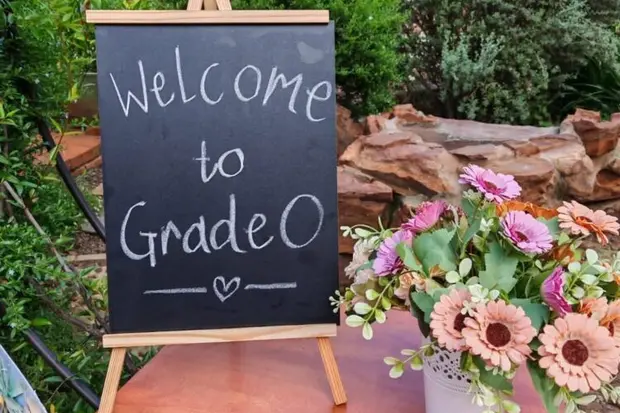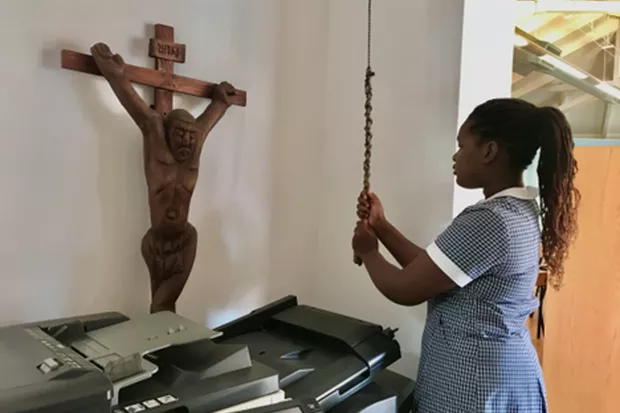From the headmistress’s desk: 1 April 2019

Dear parents,
In a Just Junior article last year I remarked that schools, by definition, are places of change. I was speaking then about the changes brought about in your daughters through the education and socialisation they experience at school; now I am referring to something more visible: how much they have grown! On my return, I was dazzled and confounded by the change in the girls – taller, looser-limbed, thinner in the face, bolder or suddenly more self aware, openly curious or newly guarded, unaffectedly happy or adolescently arch – I have missed so much. And how will I ever catch up? By asking questions, I suppose, and risking the impatience and bewilderment of children who have moved on and whose days are too full to admit another story: a Grade 1 girl’s, “Where were you again?” as compared with a child in Little Saint’s perfectly legitimate, “Why are you here?”
Of course, it is not just the girls who change: the school shifts, too, even in so short a time, and in subtle and not so subtle ways. The introduction of new facilities and features brings with it critical changes in emphasis and attitude; movement among the staff and recalibrated portfolios indicate a direction for the school and the mapping of previously unchartered territory; discussions with parents respond to pressures and creative tensions felt in and outside the school. To put it plainly: there’s a lot going on. And to point out that there’s a lot going on when you’re at home with a new baby as well is not to try and compete with the busyness of school, but to force a connection between the two locations that is so often obscured.
While I was at home receiving communication from the school on email, through the school app and the class WhatsApp group, in my daughter’s homework book and from what she reported verbally, I became conscious of a kind of noise that was interfering with the effective transmission of all messages. The noise was generated by a non-specific feeling of anxiety that I might misconstrue an instruction, miss an obvious cue, or get something wrong. Partly, my reaction had to do with tiredness, but it also had to do with something else that I had been shielded from when I was at work: the pressure as a parent, but particularly a mother, to be perfect. I watched as mothers sought assurance from each other that they were doing the right thing, clarified and reclarified that they had understood the latest communication correctly, or gently pushed the class representative to engage with the daily demands of the school on their behalf in case they made a mistake, messed up, or got it wrong.
We speak a lot about rising anxiety levels in the girls and how to address them, but all too often, in any discussion about parental anxiety – again, anxious mothers in particular – we are quick to pathologise the behaviour without attempting to uncover its origins. This tendency to look inwards and find fault with mothers, what they do and don’t do at every turn, keeps us from engaging critically with the socio-political forces that shape our lives and make things feel, frankly, out of control. If anything, my time at home with both my daughters made me realise how easily the desire to do the best we can for our children mutates into the fear of getting anything wrong – the girl power “We can do anything” escalated to the profoundly disempowering “We must do everything” and all, as New York Times bestselling author Judith Warner observes “at an incredibly high level of performance”. This is why I am ending this article, not with another pronouncement on what you should do, but with a heartfelt request: let’s work together, with real intent, to create an environment that enables us to look outwards and raise our girls to develop reasonable, clear-sighted expectations of themselves and the world they were born to change.
Dr Sarah Warner
Headmistress
Related News

Little Saints News

Grade 0 News

Grade 7 News
